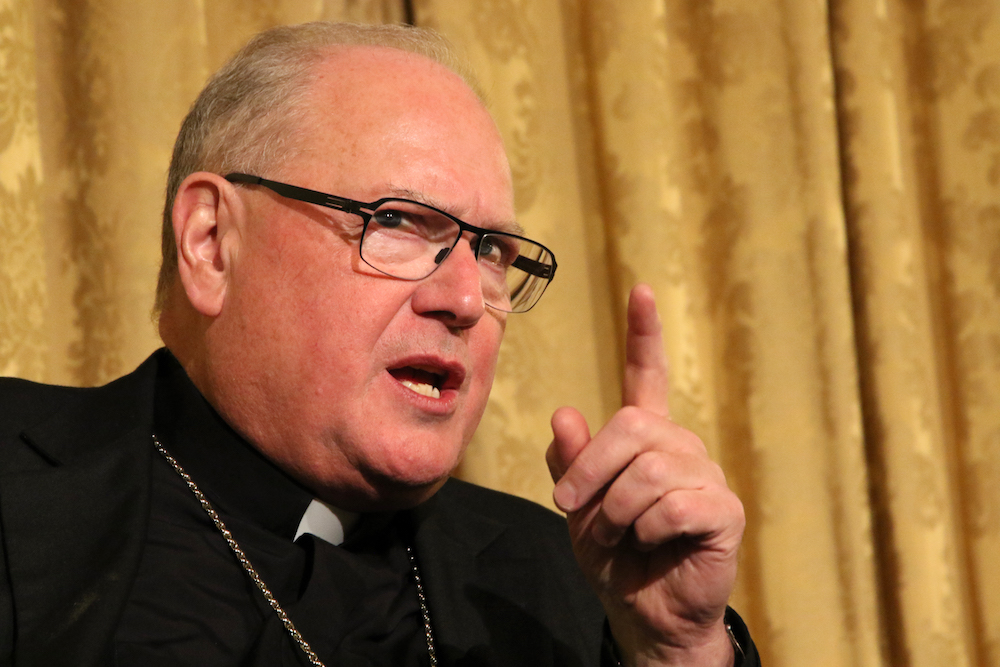Recent revelations and accusations related to clerical sexual abuse have been “a disaster, one crisis after another” for the Catholic Church, according to Cardinal Timothy Dolan of New York, and have jeopardized its moral authority to speak on other issues such as the sanctity of human life, immigration and the environment.
In an interview on Thursday with CNN’s Christiane Amanpour, the archbishop of New York said the latest rounds of abuse scandals have been “nauseating” and “diabolical,” although he hopes they can ultimately be a “cause for healing.”
In June, former Cardinal Theodore McCarrick was credibly accused of abusing an altar boy while serving as a priest in the archdiocese of New York, prompting a wave of new allegations spanning several decades from seminarians who said they were abused by the former archbishop of Newark and Washington.
Pope Francis has since accepted McCarrick’s resignation from the College of Cardinals and banned him from exercising public ministry.
That news was followed by the release of a Pennsylvania Grand Jury report, which chronicled the abuse of over 1,000 minors at the hands of 300 abuser priests, spanning seven decades.
Last month, a former papal ambassador to the United States, Italian Archbishop Carlo Maria Viganò, published an 11-page statement claiming Francis was aware of McCarrick’s past as of June 2013 and lifted sanctions against him previously imposed by Pope Emeritus Benedict XVI.
While Viganò’s account has been the subject of much debate, Francis has refused to directly answer questions about the allegations. Earlier this week, the Vatican said it would soon be issuing “clarifications” on those claims.
The pope also announced this week that in February he will convoke a global gathering of the president of every bishops’ conference from around the world in Rome to address the issue of the protection of minors.
Dolan’s exchange with Amanpour marked his first major interview in a summer that he described as “anything but a church picnic” - adding that his own nonagenarian mother has been “ashamed” of the Church.
The cardinal said that he takes the account of the former papal envoy “seriously,” and that he trusts Francis to respond appropriately.
Among the claims in the Viganò missive, in which he names more than 30 senior churchmen as being complicit in sexual abuse cover-up, is that Francis was protecting a “homosexual current” within the Church.
Dolan told Amanpour that gay clergy are not the “sole root” of the crisis.
“It’s not about gay or straight, liberal or conservative, Viganò or Pope Francis,” he maintained. “It’s about right and wrong.”
He also voiced strong support for Cardinal Donald Wuerl of Washington, who has been under fire for his handling of sex abuse while bishop of Pittsburgh in the 1980s and 1990s, and is now under pressure to resign his post.
Wuerl, who has traveled to Rome to meet Francis, has signaled his openness to it, adding in recent days that he would soon request the pope accept his resignation in an effort to bring about healing. Dolan, however, maintained that the Church “needs him” in order to implement the pledged reforms. He called Wuerl a “tremendous leader among the bishops.”
The cardinal went on to defend his own handling of sex abuse claims during his time as Archbishop of Milwaukee, and in particular, his decision to move nearly $57 million dollars of Church assets into a special trust that could not be accessed to victims seeking compensation.
Dolan insisted that the decision was mandated by law at the time in order to separate cemetery money from archdiocesan funds, and he rejected the notion it was part of an effort to protect the institution.
While weighing in on a range of other topics, such as the Church’s concern for climate change in light of the looming hurricane expected to batter the East Coast in coming days and the ongoing efforts to protect immigrants, Dolan lamented that the Church’s dark past on the issue of sexual abuse - which he acknowledged had been “kept quiet for too long” - weakened the Church’s voices in other arenas.
“We’re about people, we’re about victims, we’re about souls, we’re about human dignity,” he contended. “Not an institution.”

